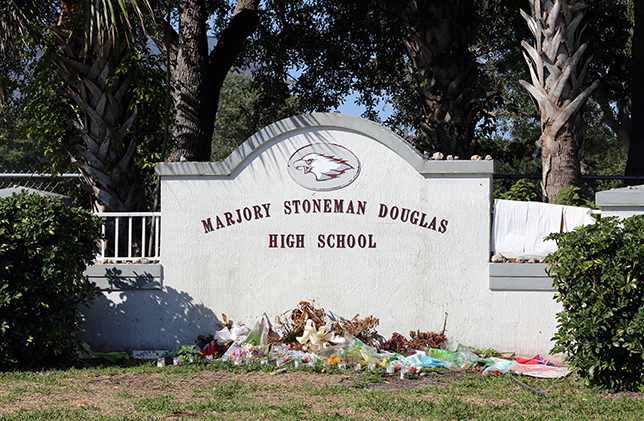
Jury in Parkland Shooting Trial Recommends Life in Prison
- By Matt Jones
- October 14, 2022
The jury in the trial of Nikolas Cruz, who has pled guilty to killing 17 people and wounding 17 more at Marjory Stoneman Douglas High School in Parkland, Fla., in 2018, has recommended a sentence of life in prison without the possibility of parole, according to national news.
The recommendation is not an official sentencing, but Florida law prevents Broward Circuit Judge Elizabeth Scherer from deviating from the jury’s recommendation, reports CNN. The judge is scheduled to make the ruling official on Nov. 1.
The families of the victims have expressed frustrations with the jury’s decision to not pursue the death penalty. National news reports that family members present in the courtroom “bowed or shook their heads” and that “none of the jurors looked in the direction of the victims’ families as their verdicts were read.” Jurors acknowledged aggravating factors in the murders as presented by the prosecution but determined that they were not enough to overcome mitigating circumstances—such as Cruz’s upbringing—that the defense said were worthy of life imprisonment.
“I am disgusted with our legal system. I am disgusted with these jurors,” said Ilan Alhadeff, father of Alyssa Alhadeff, who was 14 when she was gunned down in the shooting. “That you can allow 17 dead, and 17 others shot and wounded, and not give the death penalty. What do we have the death penalty for? What is the purpose of it? You set a precedent today. You set a precedent for the next mass killing that nothing happens to you. You’ll get life in jail. I’m sorry—that is not okay. As a country, we need to stand up and say that’s not okay.”
“This shooter did not deserve compassion,” said Tony Monalto, father of Gina Monalto, 14, who was also killed. “Did he show the compassion to Gina when he put the weapon against her chest and chose to pull the trigger, or any of the other three times that he shot her? Was that compassionate?”
Prosecutors had attempted to make the case for a death sentence, illustrating the deliberate, methodical nature of the shooting. “The plan was goal-directed, it was calculated, it was purposeful, and it was a systematic massacre,” said prosecutor Mike Satz.
The trial lasted six months and is the deadliest mass shooting to ever go to trial in the U.S., according to NPR. Other attacks in which 17 or more people were killed have ended with the gunman either committing suicide or being killed by police.